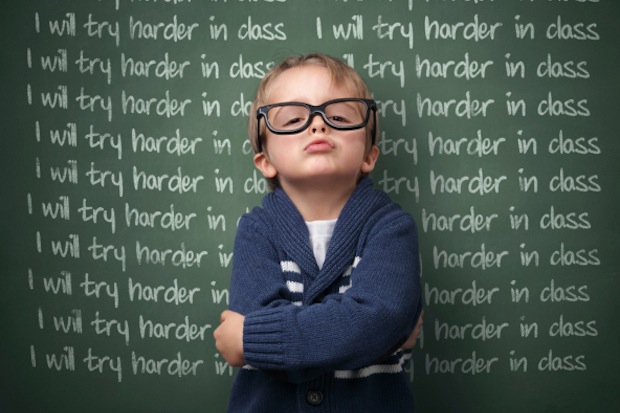A new book by a Swedish psychiatrist has just come out that I like the sound of. It’s called How Children Took Power and argues that the child-centred approach to parenting that’s been popular in Scandinavia since the 1960s has created a nation of ouppfostrade, which roughly translates as ‘bad children’.
Dr David Eberhard, a 42-year-old father of six, says a lack of discipline during childhood has left millions of Swedes unable to cope with the challenges of adult life. By way of evidence, he cites the above-average number of anxiety disorders and higher suicide rate among children raised by liberal parents. ‘Saying ‘no’ to a child is not the same as beating a child,’ says Dr Eberhard. ‘Parents should act like parents, not best friends. They should prepare their kids for adult life by teaching them how to behave, not treat them like princes or princesses.’
It’s not just parents who are at fault. Dr Eberhard points out that the same permissive philosophy has spread to Swedish schools, robbing teachers of any authority. He says that Swedish schoolteachers cannot insist that children stop playing on their mobile phones in lessons. Instead, they’re expected to reason with them — persuade them that it’s a bad idea. If they try and take a pupil’s phone without his or her consent, they’re likely to get a lecture about children’s rights.
Sweden’s schools don’t sound that different from ours and Dr Eberhard’s observations clearly apply to plenty of British parents as well. I often joke about how my household is a matriarchal dictatorship, with Caroline calling the shots, but the truth is neither of us have much authority over our children. When we tell our ten-year-old daughter that she can’t do something — stay up till midnight, for instance — she doesn’t throw a wobbler. She just gives us a look of withering contempt. It’s as if we’ve momentarily forgotten the natural order of things, in which she’s the queen bee and we exist to serve her needs.
In the past when I’ve written about being bossed around by my kids, people have told me to ‘man up’ and ‘grow a pair’. But it’s not easy to claim back power when you live in a society in which any assertion of authority, even parental authority, is deeply unfashionable. One of the shortcomings of democracies, according to Alexis de Tocqueville, is that the principle of democracy becomes too dominant, steadily eroding all other sources of authority until there are no bulwarks left against the tyranny of the majority. In most western liberal democracies, not just Sweden, we seem to have reached that point.
Hannah Arendt takes up this theme in her 1954 essay entitled ‘The Crisis in Education’. She complains about exactly the same child-centred philosophy in American schools that Dr Eberhard complains about in Swedish schools, only she says it first took hold a quarter of a century earlier, i.e. in 1929, almost 100 years ago. Like Dr Eberhard, she thinks the permissive approach to raising children causes them irreparable psychological harm and points out how ironic that is, given that the grown-ups behaving in this way believe they’re morally superior to those who treat children in a more traditional fashion.
One of the harmful effects she mentions is that if a child’s parent or teacher no longer possesses any authority, the child in question is completely at the mercy of its peer group. Why is that bad? Because ‘the authority of a group, even a child group, is always stronger and considerably more tyrannical than the severest authority of an individual person can ever be’, she writes. In this way, children are emancipated from the authority of adults, only to be subject to the much more terrifying and capricious authority of the majority. An approach to bringing up children that we think fosters individualism and strength of character ends up producing adults who are slavishly politically correct, too timid to dissent from the orthodoxies of the present moment.
Dr Eberhard says there’s a simple solution, which is for parents and teachers to take back the authority they’ve transferred to children, thereby restoring the relationship to its natural state. But Arendt thinks that’s naive. She believes there’s a profound contradiction at the heart of mature liberal democracies, which is that we cannot forgo either authority or tradition when it comes to raising children if we want our institutions to survive, yet, at the same time, we live in societies in which authority and tradition are constantly being undermined. She’s plainly right, so what on earth are we to do?







Comments